The public response to their efforts is striking. Merkel gets high marks for “reasoning rather than rousing.” New Zealand’s Jacinda Ardern earns praise for her “clarity and compassion.” Commentators commend Canada’s numerous female chief medical officers, who have taken the lead on health policy while Prime Minister Justin Trudeau is in quarantine, for their calm and consistency.
Such perceptions owe a great deal to gender stereotypes, which affect both how people perceive women and how women behave. Decades of research show that female leaders are more likely to be democratic or participative — and less autocratic — in their leadership style, meaning they invite subordinates to participate in decision-making. Equally, women more often lead through motivation, engaging followers’ shared interests, while men tend to rely on incentives.
Some comparisons are illustrative. On March 13, President Trump addressed the nation in the Rose Garden. As Trump stressed deals with countries and corporations, Vice President Pence called companies “synonymous with communities.” Three days later, Norway’s Prime Minister Erna Solberg convened a very different news conference, directed at children, not shareholders: “It is okay to be scared when so many things happen at the same time,” she said. Then, she went on to offer simple and straightforward answers to questions, still ostensibly aimed at children, that many adults are also confronting as the disruptions to their lives multiply: Can I visit my grandparents? How long does it take to make a vaccine? What can I do to help?
Effective leadership skills are not gender-exclusive or biologically determined. Like all of us, leaders learn to take into account social expectations. Women in male-dominated fields often incur penalties for assertive, power-seeking behavior because it violates expectations of feminine communality. Numerous studies find stereotypically “feminine” leadership more effective, yet still people prefer traits associated with men — confidence, competitiveness, decisiveness.
Perseverance in the face of danger is an example of a masculine ideal. The mayor of Milan, Giuseppe Sala, launched a “Milan Doesn’t Stop” campaign encouraging people to visit bars and restaurants after northern Italy already identified 300 coronavirus cases. He apologized for the disastrous outcome, but Brazil’s Jair Bolsonaro has borrowed the campaign anyway. Perseverance sits adjacent to war-making, a motif many male leaders have relied on to motivate followers and constituents. French President Emmanuel Macron doubled down on his masculine authority — something his detractors have taken jabs at — by repeatedly stressing, “We are at war.”
Gender bias hurts women’s perceived decisiveness, but women have spearheaded many of the swiftest prevention measures and are now leading the earliest returns to work. Taiwan’s Tsai Ing-wen had approval ratings as low as 15 percent last December, but they have soared to 75 percent following her extraordinarily swift response to covid-19: She already had tough measures in place by early January, and by the end of the month the country was producing 2 million masks per day. Michigan’s Gov. Gretchen Whitmer (D) drew the president’s ire for swiftly declaring a state of emergency, closing schools and publicly calling for federal support. Her fast action bent the curve and initially drew bipartisan support — garnering local approval ratings 20 points higher than President Trump’s — though she now faces protests and backlash.
Female political leaders have less room for error than do their male peers. Voters are more inclined to punish them for policy failures — particularly economic problems — while giving male leaders a pass for “bad luck.” Perhaps aware of the high stakes, women-led governments have launched some of the most aggressive social support measures. Iceland’s prime minister, Katrin Jakobsdottir, declared “prevention is the best medicine” and promptly guaranteed wages for everyone quarantining early in the country’s response. In Denmark, Mette Frederiksen’s government did the same, guaranteeing 75 percent of employee wages. Now, Germany, Norway and Denmark, all woman-led, are among the first countries to begin easing restrictions.
Make no mistake: Countries that are doing well cannot cite the biology of their leaders. They are excelling because they have good policies, clear communication and information-sharing, and leaders who listen. To the extent that female heads of state are performing better than men against the coronavirus crisis, it’s likely because women are expected to be — and have learned to be — more democratic leaders, more collaborative and more compassionate communicators.
Women have long struggled to overcome double standards and gender stereotypes in politics. Now their efforts are paying dividends in matters of life and death. They deserve credit. Will voters finally take heed?
Source: Washington Post online

